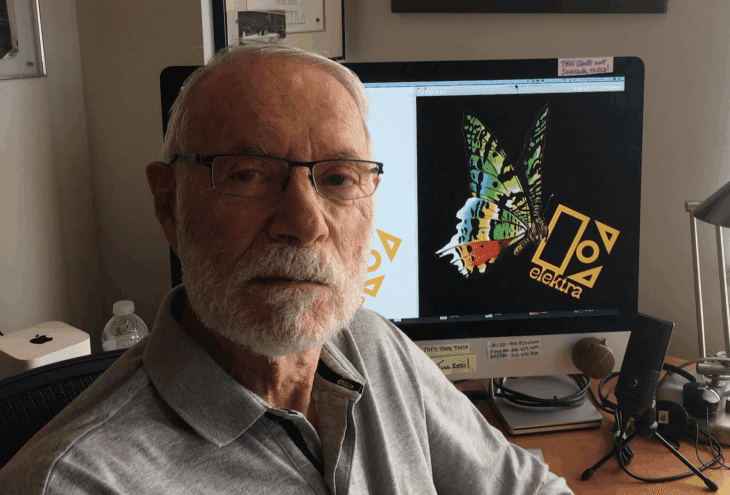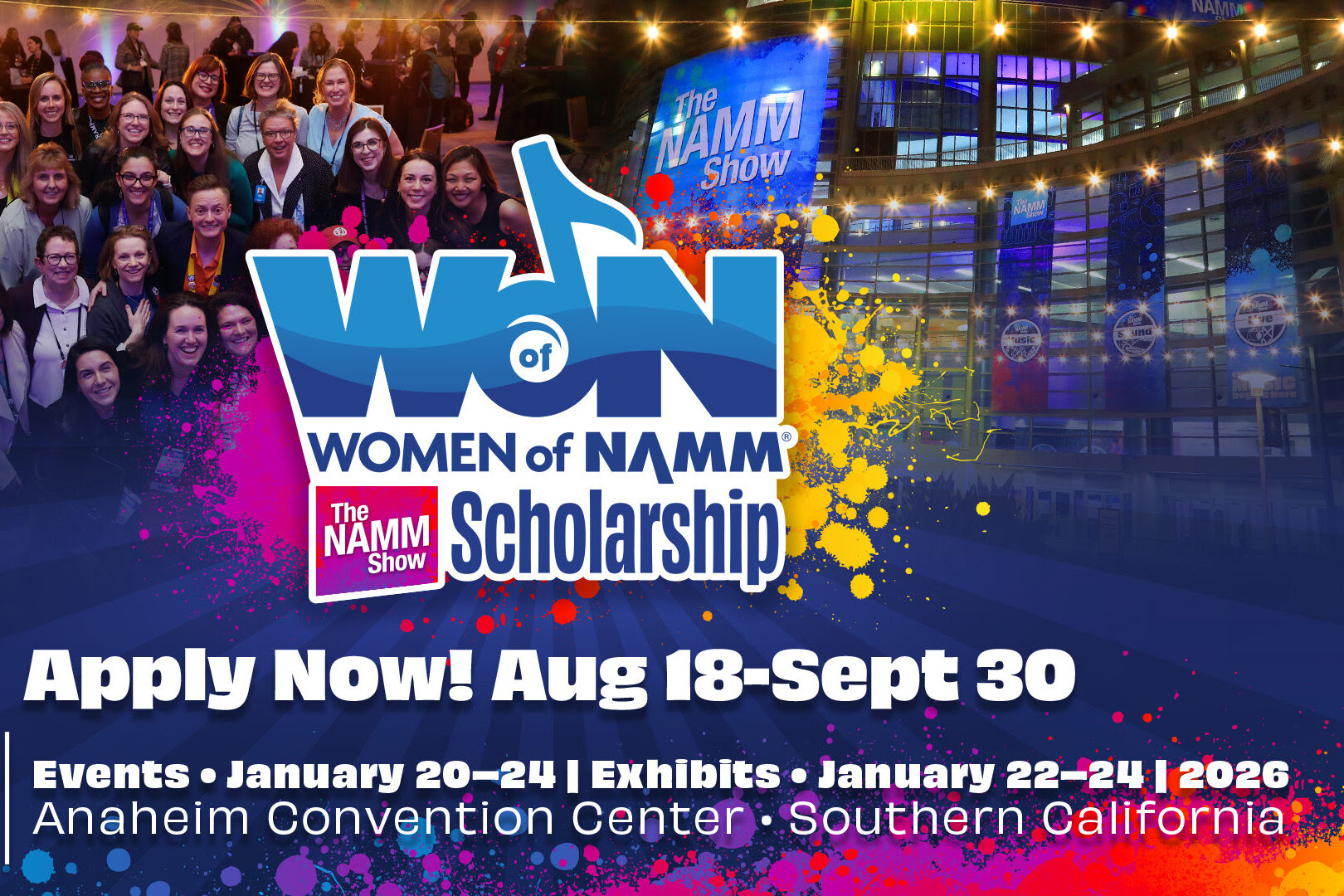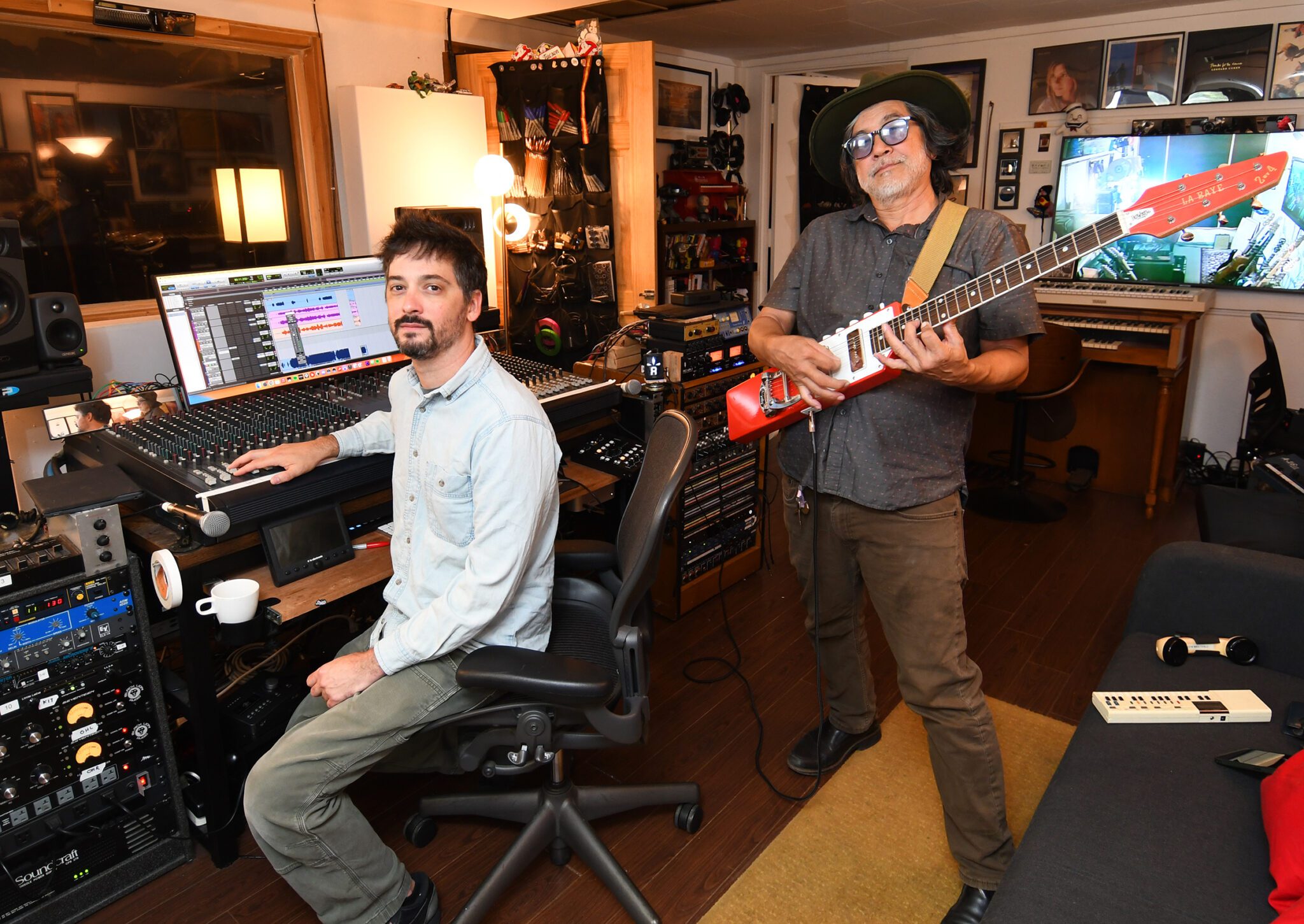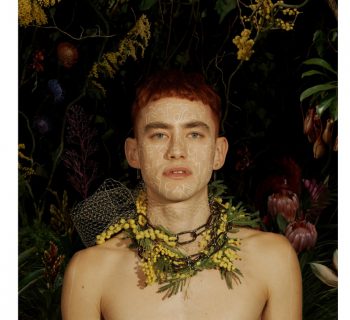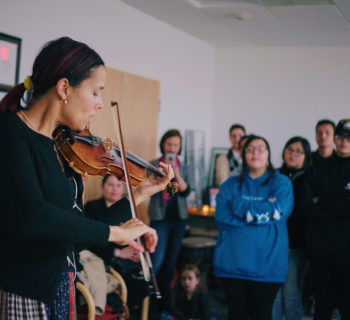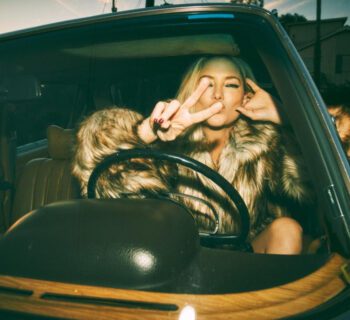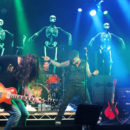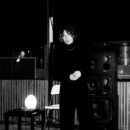As part of Elektra Records’ 75th Anniversary celebration, Rhino Entertainment has just released an extensive collection of iconic Elektra titles on vinyl. The series encompasses acclaimed albums issued from the ’60s through the ’90s that underline the label’s era-defining, genre-defiant catalog. Titles from the collection were issued each Friday in July, featuring groundbreaking, timeless works. They will be available at participating brick-and-mortar stores across the country.
The July albums included The Afghan Whigs – Gentlemen, Anita Baker – Rapture, Bread - Best of Bread, Grover Washington Jr. – Winelight, Keith Sweat - Keith Sweat, Nanci Griffith - Other Voices, Other Rooms, Public Image Ltd - This Is What You Want… This Is What You Get, Superdrag - Regretfully Yours, Television - Adventure (High Fidelity), The Stooges - The Stooges (High Fidelity), Third Eye Blind - Third Eye Blind, Tim Buckley - Happy Sad (Rhino Reserve), Sisters of Mercy - First and Last and Always, The Cars - The Cars (High Fidelity), Television - Marquee Moon (High Fidelity), The Cars-Shake It Up (Rhino Reserve), Love-The Elektra Singles, The Doors-Golden Doors 2.
Rhino’s Quadio continues the Elektra 75th anniversary with four hits collections: Judy Collins’ Colors of the Day (1972), the New Seekers’ The Best of the New Seekers (1973), and Carly Simon’s The Best of Carly Simon (1975). Each disc pairs the original quadraphonic mix with a hi-res 192 kHz/24-bit stereo transfer, both sourced from the original analog four-track quad master tapes. Available exclusively through Rhino.com and select Warner Music Group stores worldwide.
As a highlight of this special Elektra 75 collection, label founder Jac Holzman has assembled an album featuring Bob Dylan alongside other influential folk artists such as Fred Neil, Tom Paxton, and Judy Collins, entitled Dylan’s Circle. It’s available as a 1LP/1CD that highlights the collaboration and competition between these legendary musicians and honors the Greenwich Village music scene of the early 1960s. From Dylan's "North Country Blues" to "Maggie's Farm," the compilation showcases the era's defining sound. It's a tribute to the artists who helped shape the folk revival and to Jac Holzman's legacy.
Jac Holzman’s initial 1950-1972 sonic navigations were fearless and forsensic. Today his catalog, now distributed by Rhino, continues to resonate and penetrate.
Jac Holzman was born September 15, 1931 in New York City. The son of a Manhattan doctor, he co-founded Elektra Entertainment with Paul Rickolt as a small independent folk label in his St. John's College dormitory room in 1950 in Queens, New York.
Jac subsequently decided to employ the name Elektra for his new record company, and in December 1950 recorded New Songs by John Gruen and pressed up 500 copies.
Helming Elektra, Holzman would eventually discover and/or sign artists Theodore Bikel, the Paul Butterfield Blues Band, Love, the Doors, Josh White, Tim Buckley, Carly Simon, the Stooges, MC5, Harry Chapin, Bread, Judy Collins, the Cars and inked Queen to their North American deal.
Holzman launched Nonesuch Records. This classical budget label. Holzman issued The Even Dozen Jug Band with John Sebastian (Lovin' Spoonful), Steve Katz (Blood, Sweat and Tears) and Maria Muldaur.
In 1970, Holzman’s Elektra and Nonesuch Records were acquired by Kinney National Services, who soon changed its name to Warner Communications. In 1972 a new conglomerate company became Warner-Elektra-Atlantic, or WEA for short. Jac continued to oversee Elektra under the Warner Communications umbrella until 1973.
In 1998, Jac Holzman wrote and published his autobiography titled Follow the Music: The Life and High Times of Elektra Records in the Great Years of American Pop Culture (with Gavan Daws).
During 2008, Holzman was given the NARAS Grammy Trustees Award. In 2011, Holzman, along with Art Rupe, founder of Specialty Records, were awarded the Ahmet Ertegun Award by the Rock and Roll Hall of Fame and welcomed into the non-performer category. The Doors’ John Densmore gave the induction speech for Holzman.
Mark Sebastian is an acclaimed singer and songwriter. He co-wrote “Summer In the City” a number one hit for the Lovin’ Spoonful. I asked him about Elektra Records and owner Jac Holzman.
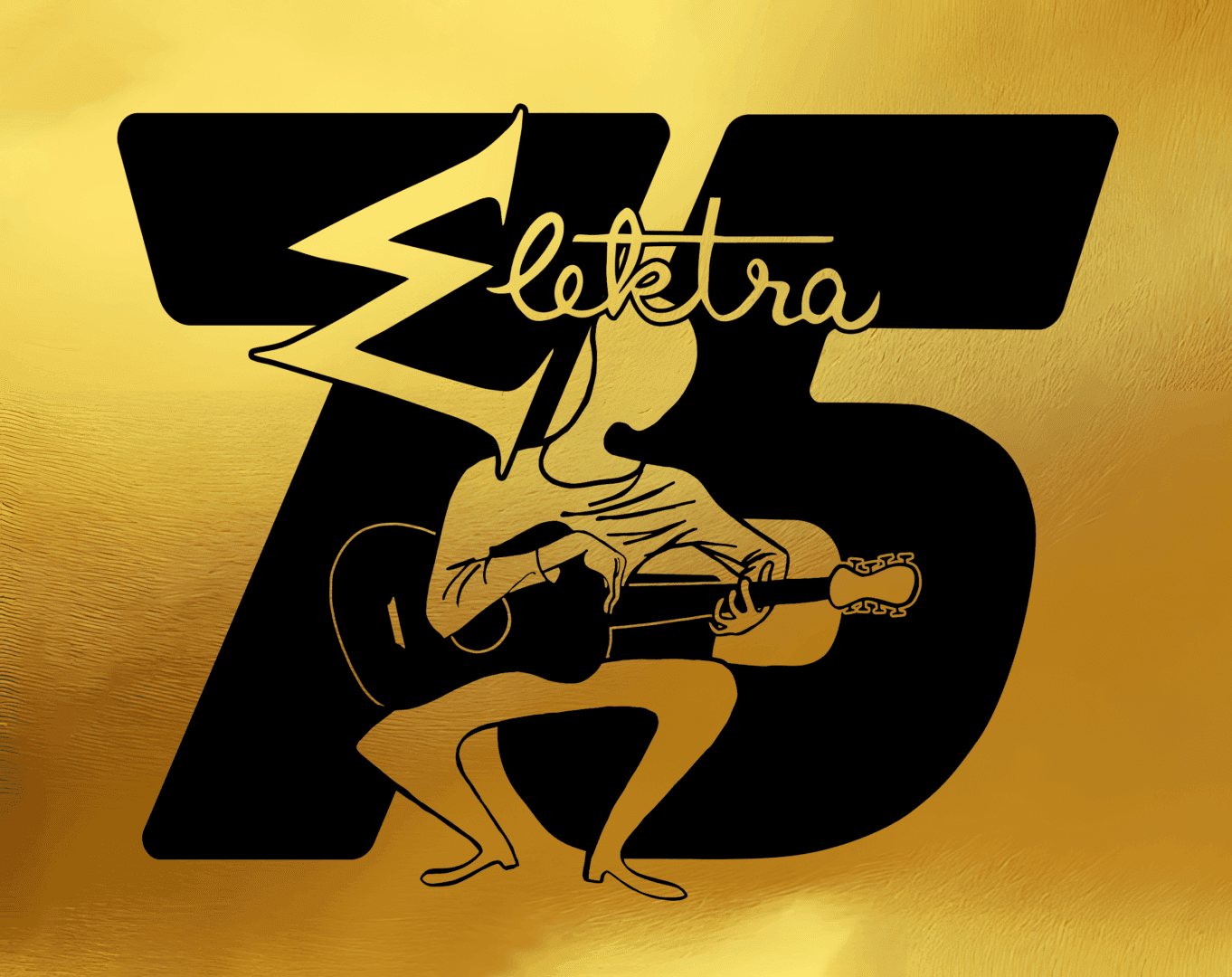
“Growing up in Greenwich Village, our record stores were rife with international and folk records. Jac Holzman’s Elektra Records offered a lot of unique releases like Theo Bikel’s Folk Songs Of Israel, Jean Ritchie, some blues greats like Sonny Terry and Brownie McGhee. Many of his artists were family friends of my parents, like Sonny Terry and Josh White. So we had all those records in our apartment on Washington Square. Jac delivered his records around the Village on his Vespa, so he cut a unique figure. I used to see his scooter in front of the record stores that carried international and folk records.I later crashed that hallowed Vespa into a tree, but the less said about that, the better. Maybe it was a harbinger of my gradual conversion to pop music.
“I began to listen more deeply when Tear Down the Walls by Vince Martin and Fred Neil came out. Also, albums my brother John played on, like Judy Collins album interested me, of course… I really liked the sound of the 12-string on the Martin & Neil albums, just as I did on Bob Gibson cuts. John took me to hear Martin And Neil at the Village Gate and I was very impressed, both by Vince’s personality and Fred’s voice, which was otherworldly. They sang many songs I knew from Sing Out magazine and Pete Seeger records. The first time I heard Fred I realized he was in a class apart from any other singer. Vince’s voice was more theatrical and he shone in the Jamaican music that was so popular at the time. He knew how to cater to the audiences in the Village on week-ends; collegiates and tourists. Calypso was king for a short time in Folk clubs!
“When the Lovin’ Spoonful contributed tracks to What’s Shakin’, it was evident Jac was trying to make an entree into blues/rock. It featured very early recordings by Eric Clapton and the Powerhouse, Paul Butterfield Blues Band, and the Lovin’ Spoonful.
“I was already a fan of the Butterfield band, as I had heard recordings of them at the Newport Folk Festival. I was around Paul Butterfield a lot at gigs in the Village and concerts at venues where the Even Dozen Jug Band or Victoria Spivey performed. The early band was comprised of players my brother had told me about. Drummer Sam Lay was a legend to me.
“Of course, I understood that Butterfield was great, having heard the influences that formed him, like Little Walter and Sonny Terry. My brother confirmed that Paul was the real deal and not one of the many who just repeated a few riffs they knew. My father [musician, composer and master of the classical chromatic harmonica] was always rehearsing in the next room. Dad appreciated Butterfield’s gift after John took him to a couple of his concerts Our house was built on the harmonica. I acquired an ear for blues, both country and city blues, like Lightnin’ Hopkins’ music. I met him when I fwas sent almost every blues and folk record Jac put out on Elektra, I guess I began to be considered a tastemaker at 14.
“I first became aware of Love when their records came to New York’s FM stations. In roughly ’69 and ’70 we had unique on air talent like Rosko and Allison Steele. The DJ’s we had on FM were known for long sets involving lots of variety; Ritchie Havens or Moody Blues.... Love worked into those sets perfectly. I was captured by the production on Forever Changes, and the popular single, ‘Alone Again Or.’ The Mexican brass Banda horns chart by arranger David Angel were totally novel, at least to me, in pop music. Love’s ‘Orange Skies,’ specifically, turned my head around. I was invited to Jac’s house in South Salem, New York. On occasion he’d play Love albums on his turntable.
“I soon realized that Jac, the label owner, was unique; not someone who emerged from the New York City Brill Building music publishing world. He was independent, open-minded, a visionary. I was too young to appreciate what comprised good or bad record label, but here was a company who did Israeli, folk, blues, and, later, experimental music.
“Now looking back, Love, Doors, Phil Ochs, Tim Buckley, Judy Collins, Jac gave each artist room to be themselves. There was room for Theo Bikel, and banjo pickers, bluegrass musicians, the Charles River Valley Boys and the Dillards. He didn’t have tunnel vision as far as what his label was all about.”
“I didn’t listen to much of what was going around me except to hear the most contemporary of things so that I could kind of avoid it,” explained Holzman in a 2017 interview with me for my book 1967: A Complete Rock Music History of the Summer of Love.
“Because it’s like shooting a bird in the sky. If you want to shoot a bird you shoot ahead of the bird and the bird and buck shot gets there at the same time. So I always wanted to be out ahead and looking for things I hadn’t heard before.
What I was finding was new. Or at least I thought it was new or I was creating it so as to be new. But the whole label was me looking for something that I hadn’t heard before. Or something that I had heard but it had a new face on it or it felt intrinsically different to me. I’m a student of history. The motion picture industry had started in New York and moved west. I saw absolutely no compelling reason why it was not gonna happen. And it was gonna happen where the weather was good.”
“In his tribute essay, My Soul Fueled Romantic Relationship with Elektra Records,
musician, keyboardist and composer Morley Bartnoff acknowledged the deep imprint the label’s catalog had on him.
“In my senior year at Clark High in Las Vegas, my brilliant theater teacher Joan Snyder Moran introduced me to Wildflowers by Judy Collins. She played it during our rehearsal breaks, and I still haven’t stopped listening.
“The music sunk into my bones. One of my high school crushes — the impossibly elegant Michelle Ritz, daughter of one of the original Ritz Brothers — noticed my obsession. One day, she came by my house with her flute, only to find me out. She told my mother: “Please tell Morley I came over to play music from Wildflowers with him. And that I’m leaving in the morning to move to Paris, never to be seen or heard from again.”
“That moment was as heartbreaking and cinematic as the songs on Wildflowers — beautifully orchestrated, emotionally haunted, eternal.
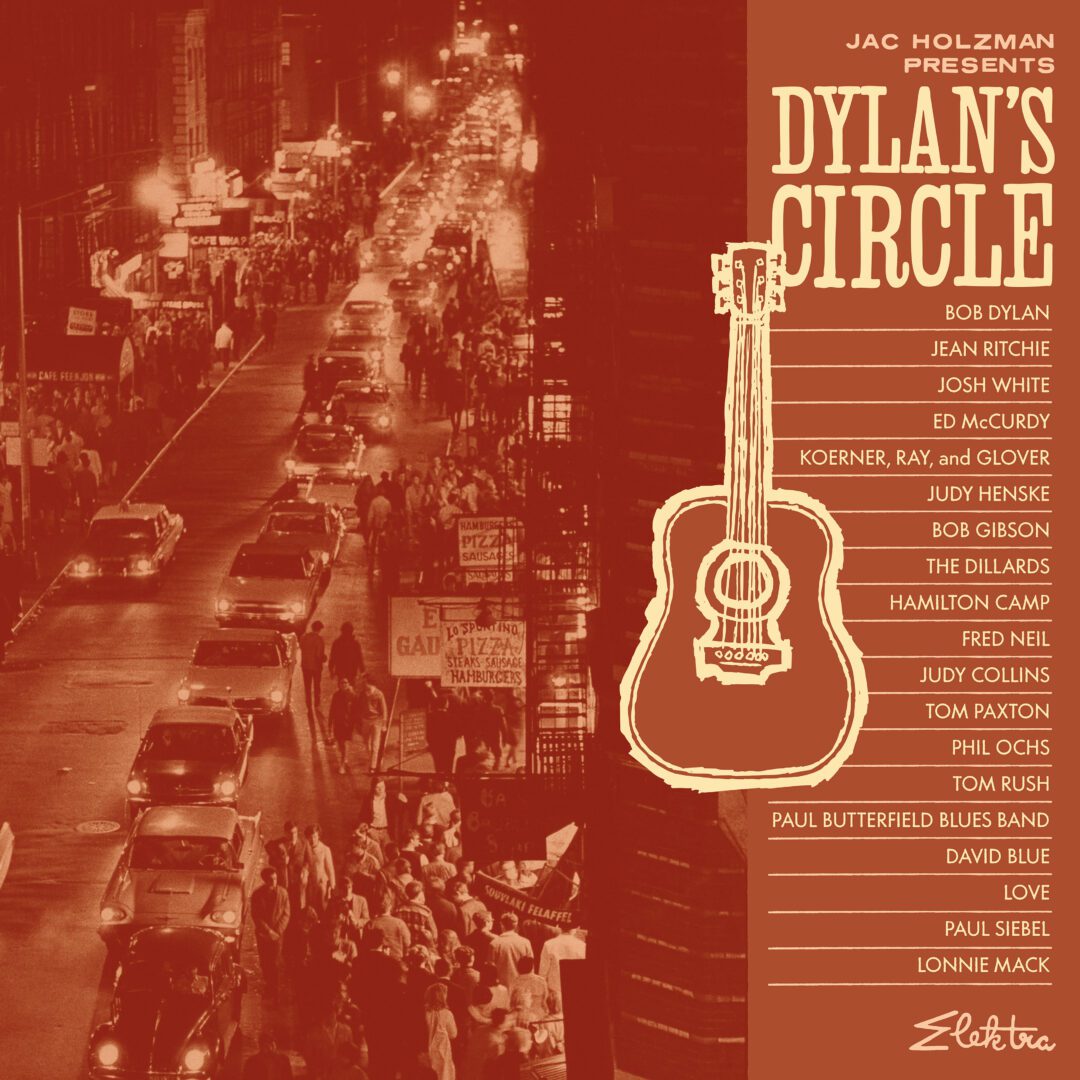
“I could easily spend pages on The Circle Game by Tom Rush — a record that opened my ears to early Joni Mitchell, Jackson Browne, James Taylor, and Tom’s own timeless ‘No Regrets.’ I’ve never stopped playing it. Like so much of the Elektra catalog, it felt carefully chosen, curated with purpose. Jac Holzman didn’t just sign artists — he assembled a universe.
“Then there was Love. Arthur Lee’s first four albums with Love are, to this day, some of the most spiritually aligned music I’ve ever heard. They changed how I listen — and how I write. I dreamt of playing some of those songs with founding guitarist Johnny Echols and Arthur’s final band, Baby Lemonade. A dream I literally danced awake.
“But it wasn’t just the front-line artists that defined Elektra. I’ll never forget when James Bennett handed me an LP back in Vegas and said, “Take this home and study it.” The album was What’s Shakin’.
“At first glance, it looked like a Lovin’ Spoonful showcase. And perhaps they should have ended up on Elektra — but that’s a separate article. What blew me away was the richness of the lineup: Paul Butterfield, Al Kooper, Tom Rush, Eric Clapton, and of course, The Spoonful.
“It was my first real understanding of how a compilation could carry weight — how it could expand your mind and taste. Each artist had multiple songs, which gave you space to live in their world. Blues, folk, soul, proto-rock… it all pulsed through that record. Elektra didn’t just put out albums; they built listening experiences.
“Years later, I found myself at Book Soup on Sunset Boulevard. I’d arrived early to hear Jac Holzman speak about his book on Elektra’s history. He glanced across the room, noticed my top hat and smiled, and pointed: ‘Well, there’s someone who’s DEFINITELY an Elektra appreciator!’
“Indeed I am.”
In 2025, there are independent record labels that are individual and family owned companies who carry on the music and record mission that people like Jac Holzman forged.
Neil Norman’s GNP Crescendo Records in Southern California is celebrating a 71st birthday. If you dig surf music, sci-fi, TV and movie soundtracks, cajun, folk, country, fifties and sixties jazz, blues, comedy, the Seeds’ catalog, and 5 STRING BANJO! Don Parmley with 12 String Guitar Billy Strange, 1964 original mono bluegrass recording, visit www.gnpcrescendo.com
Also investigate George Wallace’s High Moon Records label based in New York. www.highmoonrecords.com. This decade Wallace and his dedicated team have released albums by Love, Arthur Lee, the Ace of Cups, Gene Clark, Jeannie Piersol, the Sons of Adam, Curt Boettcher, and out in summer 2025, Sly and the Family Stone’s The First Family: Live at the Winchester Cathedral 1967
Bruce Botnick recorded and mixed many landmark albums at Sunset Sound Recorders for Jac Holzman in Hollywood on Sunset Blvd by Elektra artists Love, Doors, Tim Buckley and Clear Light.
In a 2010 interview, I asked Bruce for a comment about Jac Holzman.
“I will tell you that Jac is the last of a long line of special people in the record business who did it their total reason their total reason for being in the music business was the music. The fact that they made money, the old fashion way, was because of their passion for the music.
“It was music first and they knew it was right and people responded they would get the money. It wasn’t like the music today where the focus is on making the quarterly numbers.
“Jac’s taste in music was eclectic. What he did can be done today. It just takes somebody with strong musical tastes and a belief and a passion to do it. And build this. I miss Ahmet, I miss even Clive Davis in his early years. Because he had a vision and really turned Columbia Records around into what it became. All these guys. That was the record business. Right now there is no record business and it’s because there aren’t people with vision and really a true passion for the music running it.”

